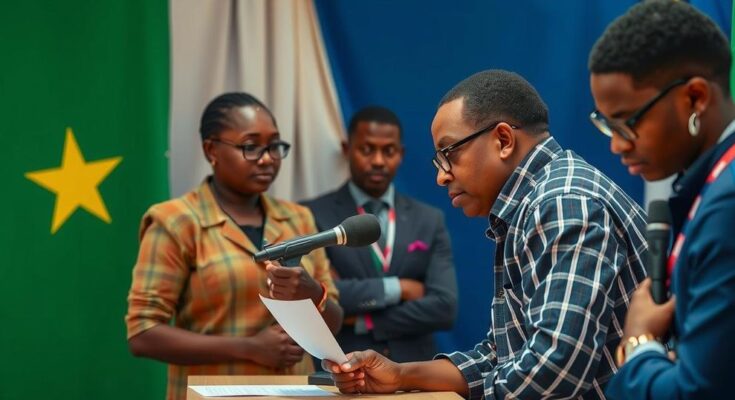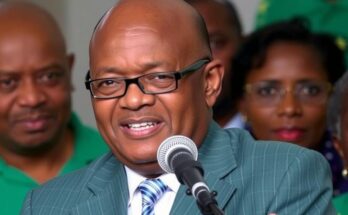Tanzania’s recent local government elections were overshadowed by reports of violence, ballot fraud, and accessibility issues for voters and opposition parties. Several allegations emerged concerning fake ballots, and incidents of physical attacks against opposition candidates were reported, which raised significant doubts about the electoral integrity. While the government claimed the elections were conducted smoothly, the opposition maintained that the process was neither free nor fair. Results are anticipated following a thorough tallying period.
On November 29, 2023, Tanzanians participated in local government elections characterized by significant reports of violence, political intimidation, and electoral irregularities. Voters went to polls nationwide, following a call from President Samia Suluhu Hassan for fair electoral participation. Nevertheless, many faced challenges locating their names on poorly arranged voter lists, which particularly affected individuals with vision impairments. Reports surfaced of opposition parties, primarily CHADEMA and ACT-Wazalendo, experiencing widespread denials of access to polling stations for their election agents, leading some to withdraw their candidates.
Fake ballots were also a considerable issue during this election cycle, with various incidents of counterfeit ballots being discovered across the country. CHADEMA reported incidents where supplies of fake ballots were seized at multiple polling stations, while ACT-Wazalendo claimed that they apprehended a candidate in possession of such ballots. Additionally, both parties reported violent acts, including physical attacks against party officials and even alleged murders of candidates, which are now under police investigation.
Despite the government’s assurance that the election process was smooth, opposition parties expressed grave concern over the integrity of the elections, claiming that the conditions did not reflect free and fair democratic practices. The Ministry of the President’s Office overseeing regional administration affirmed that results would be announced following a thorough tallying process. Nonetheless, the atmosphere surrounding the elections raises significant concerns about the future of democracy in Tanzania, especially regarding the safety and fairness of the electoral process.
The context surrounding Tanzania’s local government elections reveals a troubling landscape where political violence and intimidation dominate the electoral process. As Tanzanians turned out to vote for their local leaders, the exercise was marred with numerous accusations of irregularities, including ballot stuffing and restricted access for opposition parties. These issues have prompted international observers and local civil society to closely monitor the situation, highlighting ongoing fears over the erosion of democratic practices in the country. The elections were framed against a backdrop of heightened tensions between the ruling party and opposition factions, exacerbated by allegations of electoral malpractices and voter suppression that question the credibility of the electoral process.
In conclusion, the local government elections in Tanzania reflected significant challenges, including reports of political violence, ballot tampering, and restricted access for opposition candidates. The government’s claims of a smooth electoral process contrast sharply with the experiences of opposition parties, raising persistent questions about the democratic integrity of elections in the country. As national and international scrutiny grows, the need for profound electoral reforms to ensure free and fair elections becomes increasingly urgent, indicating a critical juncture for Tanzania’s democratic future.
Original Source: thechanzo.com




